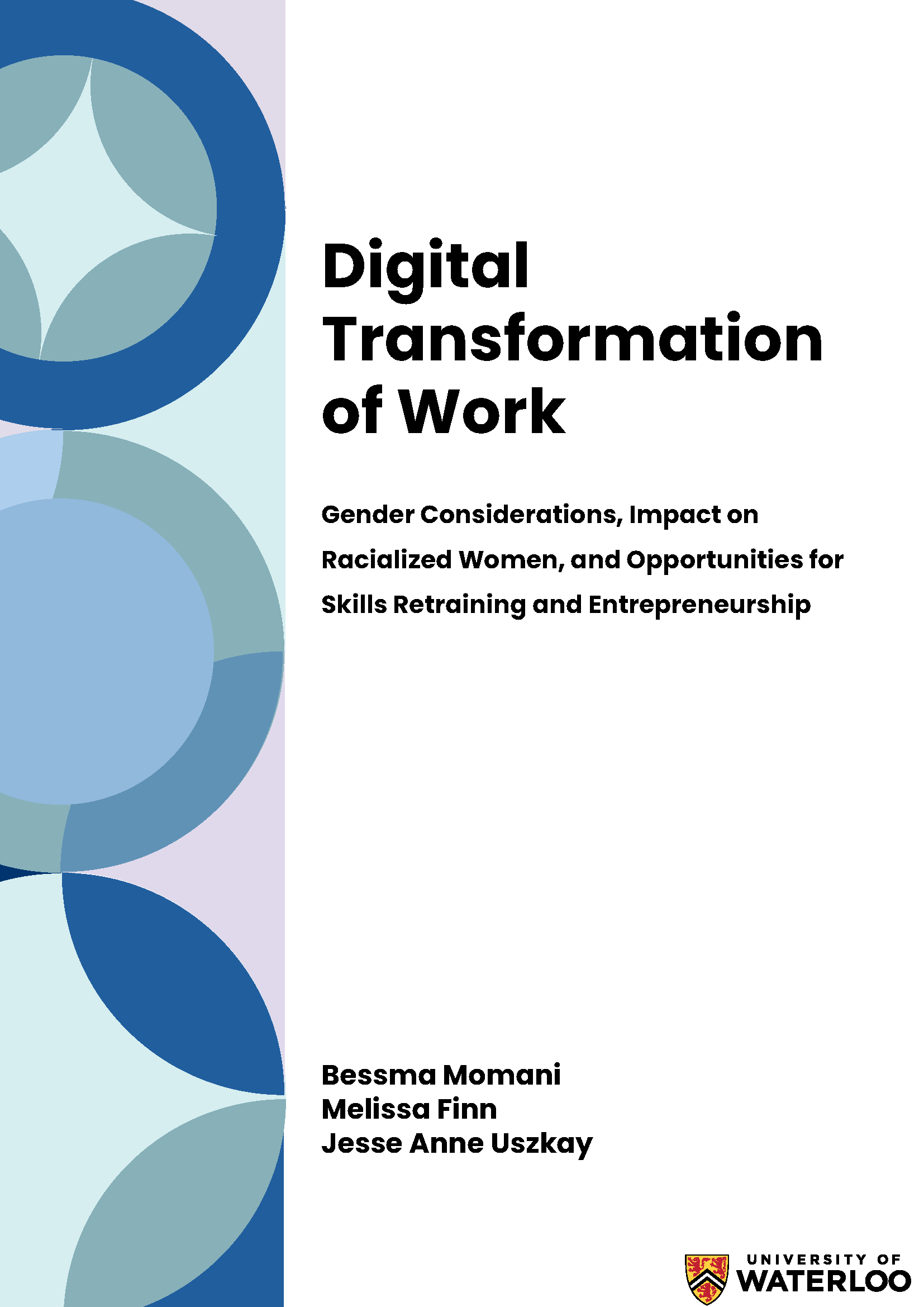
COVID-19 has shaken every economy across the globe, and the labour markets underpinning them. While digital technologies, automation, and emerging technologies were already expected to reshape the workplace and labour market in the short-term, this has been accelerated further and brought to the fore with the forced digital transformation of having to work remotely due to COVID-19. To stem the spread of COVID-19, Canadian workplaces have had to rapidly adjust to remote work, social distancing, and shifting product and service sales onto online markets. This shift has been painful, and more so for some demographic groups.
Women, immigrants, youth, racialized, and indigenous peoples are already known to be among the hardest hit from work shortages and loss of jobs, particularly those in occupations with routine tasks and low skills (OECD, 2020), and this will be accelerated by COVID-19 lockdowns and slow economic recovery. This report will review the impact of digital transformations on work and specifically on women and racialized women. Racialized women disproportionately work in sectors impacted by COVID-19, often do not have the same networks, resources, and financial buffers to sustain adjustment, and can face systemic discrimination, have been especially impacted by the digital transformation of work. To ensure broad economic growth, social cohesion, and more equitable distribution of economic gains that can be derived from the digital transformation of work, we also report on the skills that can help racialized immigrant women. Lastly, we examine how entrepreneurship and digital financial services can prove valuable for women.
By synthesizing Canadian and international reports and studies of academics, governments, non-profit organizations, industry/sectoral reports, and international economic and financial organizations, this report notes the successes and challenges experienced by racialized immigrant women in the labour market to take advantage of the digital transformation in work. In addition, we seek to enhance public policy understanding by better informing policymakers, stakeholders, academics and workplaces. The aim of this report is to benefit racialized immigrant women workers in the Canadian economy, thereby positively impacting their families, communities, and societies.
This project is funded by a Social Sciences and Humanities Research Council (SSHRC) Knowledge Synthesis Grant exploring Skills and Work in the Digital Economy. You can find more about this funding program here on SSHRC's website.
Report: Digital Transformation of Work

This report discusses the impact of digital transformation on Canadian workers, and in particular racialized immigrant women workers, who are more often employed in jobs that risk being automated, “even [when working] within the same occupational category [as men]” (Piasna and Drahokoupil 2017, 327 – 328). It synthesizes literature on skills and retraining, academic papers, working papers of think tanks, reports of non-profit organizations, data collected by immigrant-settlement agencies, media reports, government studies, industries’ sectoral studies, and other publications by stakeholders.